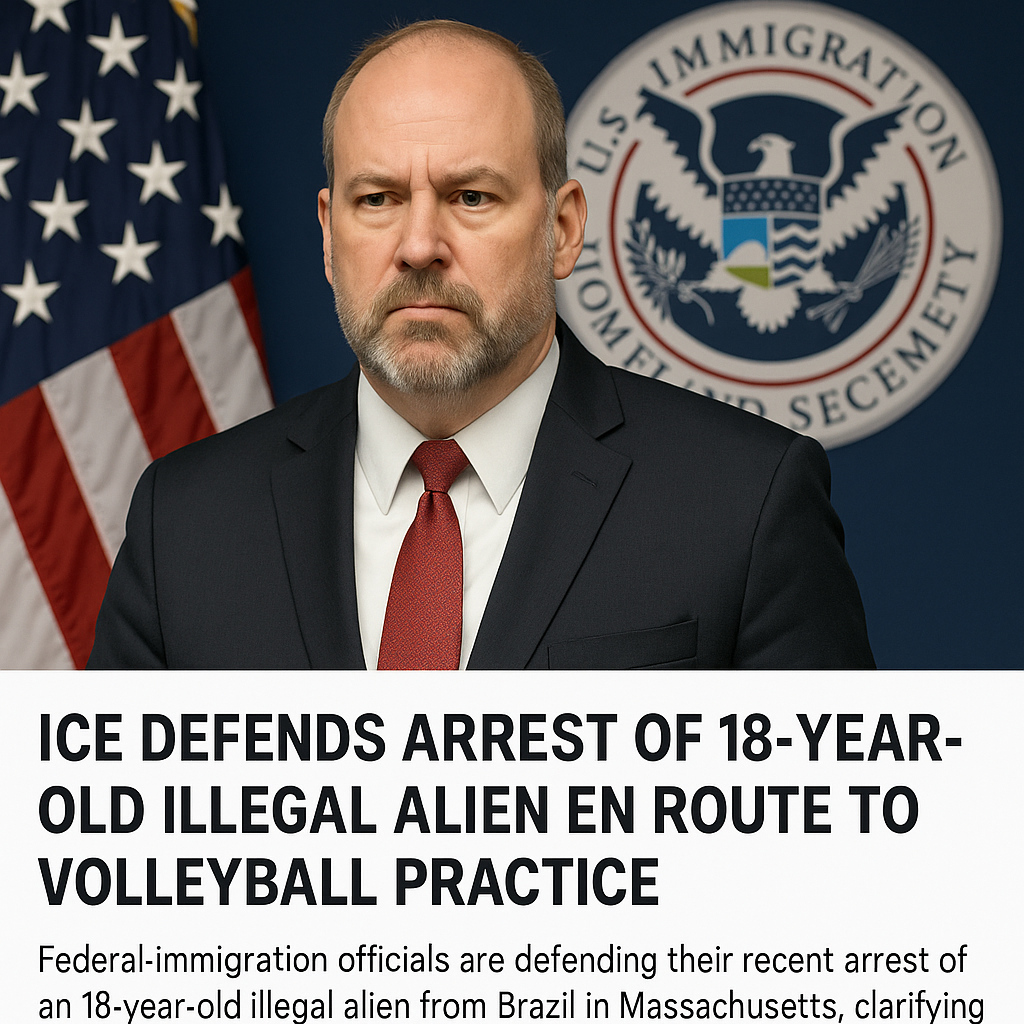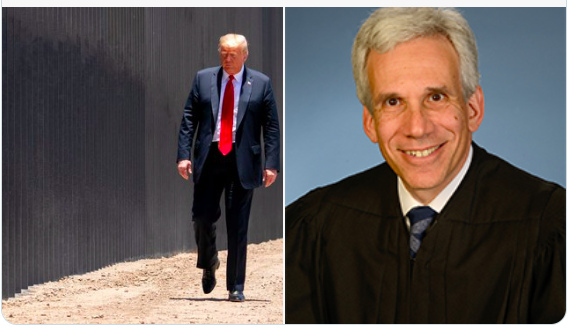ICE Defends Arrest of 18-Year-Old Illegal Alien En Route to Volleyball Practice
Federal immigration officials are defending their recent arrest of an 18-year-old illegal alien from Brazil in Massachusetts, clarifying that although the teen was not the intended target of the operation, his unlawful presence in the United States warranted detention. The incident, which occurred in the sanctuary city of Framingham, has drawn national attention and reignited debate over immigration enforcement, sanctuary policies, and the rule of law.
According to U.S. Immigration and Customs Enforcement (ICE), the arrest was part of a larger operation targeting a specific individual at the same residence. However, when officers encountered the 18-year-old, who was in the country illegally, they took him into custody under federal immigration law. Liberal media outlets and immigrant advocacy groups quickly moved to frame the incident as an unjust targeting of a young athlete, noting the teen was on his way to volleyball practice when detained.
ICE pushed back on the narrative, stating clearly that presence in the U.S. without legal documentation is, by law, grounds for removal. “We do not overlook unlawful status simply because someone is on their way to a sporting event,” said a senior ICE official. “If you are in the country illegally, you are subject to immigration enforcement.”
🚨BREAKING: ICE arrested an 18-year-old illegal in Massachusetts on Saturday as a collateral arrest for deportation.
Marcelo Gomes da Silva is from Brazil in the US illegally.
His classmates on Monday protested his arrest. They can protest all they want.
He’s getting… pic.twitter.com/exfjDyAUuG
— WatcherAnon (@WatcherQAnon) June 3, 2025
Framingham, a sanctuary city in Massachusetts, does not cooperate with ICE detainers or assist federal immigration enforcement efforts. The state’s refusal to cooperate with federal authorities has long made it a safe haven for criminal aliens and individuals in violation of immigration laws. The current ICE operation highlights the growing conflict between state-level sanctuary policies and federal law enforcement priorities.
During a recent press conference, ICE Acting Director Patrick Lechleitner voiced sharp criticism of local officials who hinder ICE’s mission. “It’s shocking that Massachusetts officials would rather release human traffickers and child rapists back into neighborhoods than cooperate with ICE,” he stated. Lechleitner emphasized that ICE operations are targeted and evidence-based, and local resistance only endangers communities further.
The teenage illegal alien has no legal right to remain in the country, and his arrest follows procedures common in immigration law enforcement. Contrary to the emotional appeals circulating in some media circles, ICE clarified that the teen’s apprehension was consistent with federal statutes, which do not exempt individuals based on age, education, or extracurricular activities.
While open-border activists attempt to reframe the narrative as an attack on immigrants, many Americans see this case as another example of the consequences of illegal immigration and the burden it places on law enforcement and taxpayers. Critics argue that the emotional language used by progressive commentators obscures the reality that laws must be enforced evenly, regardless of personal circumstances.
A Framingham city councilmember, speaking anonymously, expressed concern that the sanctuary designation has become more about political posturing than public safety. “We’re sending the wrong message to lawbreakers,” the official said. “It’s not compassionate to ignore the law—it’s reckless.”
The Biden administration has faced increasing backlash for what many see as a lack of serious immigration enforcement. Despite promises to secure the border, illegal crossings have surged, and ICE arrests have become more controversial as sanctuary cities refuse to assist federal efforts. This latest incident only adds fuel to the fire, with critics calling for the reinstatement of Trump-era policies that prioritized law and order.
From a legal standpoint, ICE’s authority to detain individuals who are unlawfully present is clearly established under federal law. The agency also noted that if local jurisdictions like Massachusetts cooperated more readily, operations could be conducted with greater precision, potentially limiting collateral arrests.
Conservative commentators have applauded ICE for standing its ground amid the growing political pressure. “We should not apologize for enforcing our laws,” said a spokesperson from a national immigration policy group. “This isn’t about volleyball practice. It’s about national sovereignty, and every illegal presence is a breach of that.”
The mainstream media’s emotional framing of this story ignores the broader crisis at hand—an immigration system under siege, overwhelmed by leniency and exploited by those who believe the law won’t be enforced. Sanctuary policies, while popular among progressive constituencies, do not exempt anyone from federal jurisdiction.
The story also reveals a troubling trend in public perception: a growing tolerance for unlawful behavior if it can be cloaked in sympathetic optics. Yet, the law does not bend for feelings, and the responsibility of law enforcement agencies is to uphold statutes without partiality.
This arrest serves as a reminder of the larger issue—the failure of sanctuary cities to support immigration enforcement endangers both citizens and migrants alike. Until there is meaningful collaboration between local and federal authorities, operations like this will continue to provoke controversy fueled more by ideology than fact.
ICE remains steadfast in its mission, despite growing opposition from progressive politicians and media allies. As the immigration debate intensifies ahead of the 2024 election cycle, this incident is likely to remain a flashpoint in the national conversation.






